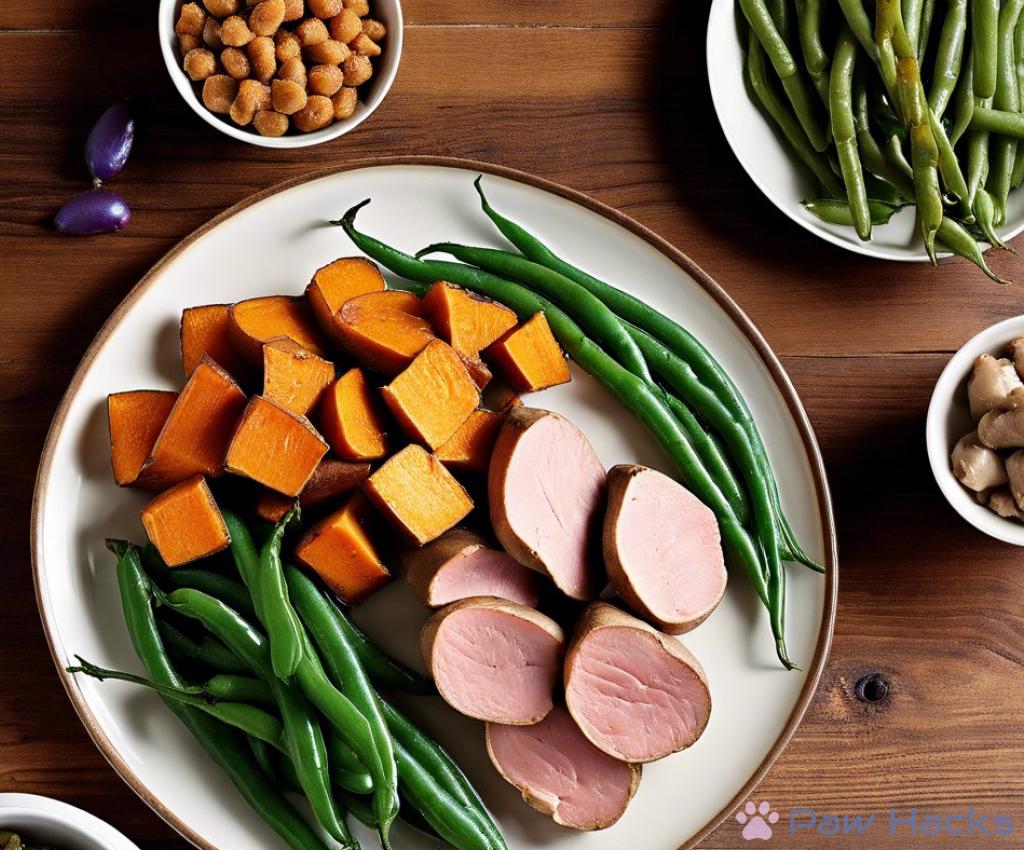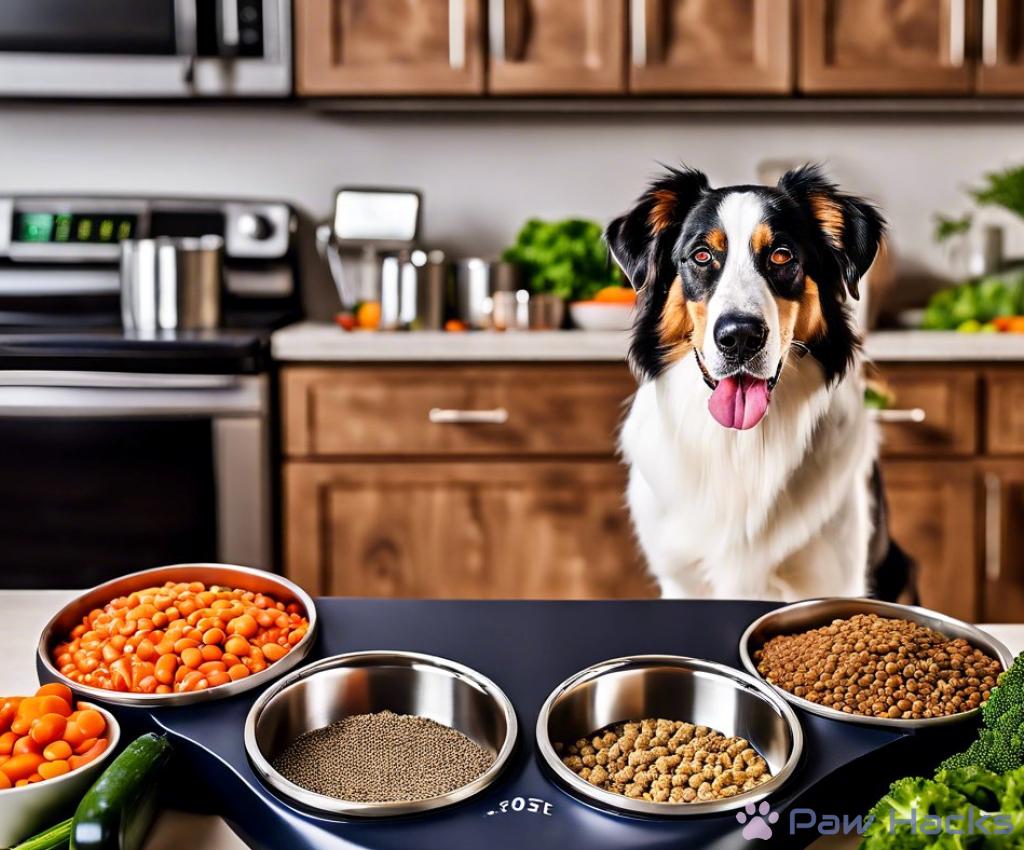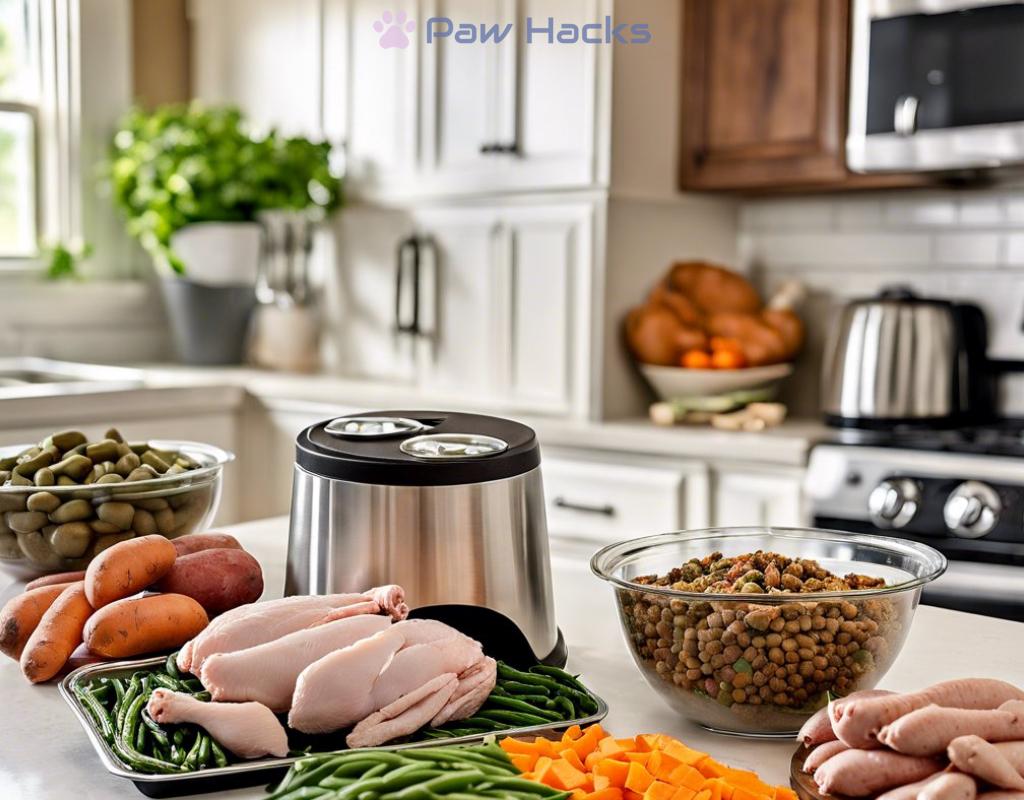Feeding Tips for Pets with Liver Disease
Nourishing Choices: Best Foods for Pets with Liver Disease

Liver disease in pets can be a daunting diagnosis for any pet owner. It is essential to understand that diet plays a pivotal role in managing liver health. Choosing the right foods can help alleviate symptoms, support liver function, and enhance the overall quality of life for your furry friend. In this article, we’ll explore the best foods that can nourish pets suffering from liver disease.
When it comes to feeding pets with liver disease, focus on nutrients that support liver function and reduce the workload on the liver. Key nutrients include easily digestible proteins, antioxidants, and certain vitamins and minerals. The goal is to provide a balanced diet that supports liver health without overburdening it.
Here are some essential nutrients to consider for your pet’s diet:
- High-Quality Protein: Look for easily digestible sources like chicken, turkey, or fish.
- Antioxidants: Include fruits and vegetables rich in antioxidants such as blueberries and spinach.
- Omega-3 Fatty Acids: Found in fish oil, these can help reduce inflammation.
- Vitamins: Vitamins E and K are particularly beneficial for liver health.
- Low Sodium: A low-sodium diet can help reduce the risk of fluid retention.
Finding the right foods for pets with liver disease can be overwhelming. To help simplify the process, we’ve compiled a list of liver-friendly foods that are both nutritious and palatable for your pets:
| Food Type | Benefits |
|---|---|
| Cooked Chicken | Lean protein that is easy to digest. |
| Fish (like Salmon) | Rich in omega-3 fatty acids; anti-inflammatory properties. |
| Sweet Potatoes | High in fiber and antioxidants; gentle on the digestive system. |
| Rice | Easy on the stomach; provides energy. |
| Carrots | High in beta-carotene; good for overall health. |
| Green Beans | Low in calories; packed with vitamins. |
Each of these foods provides essential nutrients while supporting liver health. Always consult with your veterinarian before making significant dietary changes to ensure they align with your pet’s specific health needs.
Portion Control: How Much Should Your Pet Eat?

When managing liver disease in pets, portion control is a critical factor that can significantly impact their health. Understanding the appropriate amount of food to feed your pet is vital in ensuring they receive the nutrients they need without overwhelming their liver. Overfeeding can lead to further complications, while underfeeding can deprive them of essential nutrients necessary for recovery and maintenance.
To determine the right portion sizes, it’s essential to consider your pet’s weight, age, and overall health condition. Each pet is unique, and what works for one may not be suitable for another. Consulting a veterinarian can provide a tailored feeding plan that meets your specific pet’s needs. Regular monitoring of your pet’s weight and condition can help you adjust portion sizes as needed.
Understanding Your Pet’s Needs
It’s important to recognize that pets with liver disease may have altered nutritional requirements. For instance, they might need more high-quality protein but in smaller amounts. This means that while the protein source should be easily digestible, the overall quantity must be controlled to prevent additional strain on the liver. Additionally, incorporating smaller, frequent meals throughout the day can be beneficial. This approach can help maintain energy levels and minimize the risk of digestive upset.
Signs of Proper Portioning
Monitoring your pet’s response to their diet is crucial. Look for signs that indicate whether the portion sizes are appropriate. A healthy appetite, consistent energy levels, and maintaining a stable weight are good indicators that your pet is receiving the right amount of food. On the other hand, if you notice signs of weight loss, lethargy, or gastrointestinal issues, it may be time to reassess their feeding plan. Always keep an open line of communication with your veterinarian as you navigate these dietary changes.
In conclusion, maintaining proper portion control is essential for pets with liver disease. By understanding your pet’s unique needs and adjusting portion sizes accordingly, you can help support their liver health and overall well-being. Remember, small changes can lead to significant improvements, and your vigilance can make a world of difference in your pet’s life.
Hydration Matters: Ensuring Your Pet Drinks Enough Water
Maintaining proper hydration is a vital aspect of managing liver disease in pets. Just like with food, water plays a significant role in supporting liver function. Dehydration can lead to a variety of complications, making it essential to encourage your pet to drink enough fluids. In this section, we will delve into the importance of hydration and offer helpful strategies to ensure your furry friend stays well-hydrated.
The Importance of Hydration
Water serves as a critical component in the overall health of your pet, particularly for those battling liver issues. It aids in flushing out toxins, maintaining optimal body temperature, and ensuring that nutrients are transported efficiently throughout the body. For pets with liver disease, staying hydrated can help prevent further strain on an already compromised liver.
Tips to Encourage Water Intake
Getting your pet to drink more water can sometimes be a challenge, but there are several effective strategies you can implement:
- Fresh Water Availability: Always provide fresh, clean water in a bowl that is easily accessible. Change the water daily to keep it appealing.
- Flavoring Options: Consider adding low-sodium broth or a splash of tuna water to entice your pet to drink more.
- Water Fountains: Many pets are attracted to running water. A pet water fountain can encourage them to drink more.
- Wet Food Inclusion: Incorporate wet food into their diet, as it contains a higher moisture content compared to dry kibble.
- Regular Monitoring: Keep track of your pet’s water intake and watch for any signs of dehydration, such as lethargy or dry gums.
Recognizing Signs of Dehydration
It’s crucial to be vigilant about your pet’s hydration levels. Dehydration can manifest in various ways, and being aware of the signs can help you act quickly:
- Loss of Skin Elasticity: Gently pinch the skin at the back of your pet’s neck; if it doesn’t return to its normal position quickly, they may be dehydrated.
- Dry Mouth and Gums: A dry or sticky mouth and gums can indicate insufficient hydration.
- Increased Thirst: If your pet seems to be drinking more than usual, it might be a sign of dehydration or another underlying issue.
In conclusion, ensuring that your pet stays hydrated is a fundamental part of managing liver disease. By implementing these strategies and staying vigilant about your pet’s hydration status, you can help promote their overall health and well-being.
Supplements and Additives: Boosting Liver Health Safely
Understanding the Role of Supplements in Liver Health
As pet owners, we often seek ways to improve our furry friends’ health, especially when they are facing challenges like liver disease. While a balanced diet is critical, incorporating specific supplements and additives can further support liver function. However, it’s crucial to approach this carefully, ensuring that any additions are safe and beneficial. The right supplements can provide essential nutrients, enhance recovery, and improve overall wellness.
Essential Supplements for Liver Support
In the quest to find the best supplements for pets with liver issues, it’s important to consider natural options that are backed by research. Below is a list of some widely recognized supplements that can aid in liver health:
- Milk Thistle: Known for its active ingredient silymarin, milk thistle is a powerful antioxidant that can protect liver cells and aid in regeneration.
- Vitamin E: This vitamin acts as an antioxidant, helping to reduce oxidative stress on the liver and promoting overall health.
- Omega-3 Fatty Acids: Found in fish oil, these fatty acids can help reduce inflammation and support liver function.
- Probiotics: These beneficial bacteria can improve gut health, which is closely linked to liver function.
- Arginine: An amino acid that may help with ammonia detoxification in the liver.
Choosing the Right Additives: A Careful Approach
When considering additives, it’s important to consult with your veterinarian to tailor a plan that suits your pet’s specific needs. Here are some factors to keep in mind:
- Quality Matters: Always choose high-quality supplements from reputable brands to ensure safety and efficacy.
- Dosage is Key: Follow the recommended dosages provided by your vet or on the product label to avoid over-supplementation.
- Monitor Your Pet: Keep track of any changes in your pet’s behavior or health after introducing new supplements. Report any concerns to your veterinarian immediately.
Adding the right supplements and additives can significantly enhance your pet’s recovery journey. By taking a thoughtful approach, you can help promote liver health while ensuring your pet enjoys a better quality of life.
Avoiding Dangerous Foods: What to Never Feed Your Pet
When caring for a pet with liver disease, it’s essential to be mindful not only of what to include in their diet but also of what to strictly avoid. Certain foods can exacerbate liver conditions, leading to serious health complications. Understanding the risks associated with specific ingredients is crucial for maintaining your pet’s well-being and supporting their liver health effectively.
Identifying Harmful Ingredients
Many common foods that humans enjoy can pose significant threats to pets with liver disease. One of the most dangerous substances is grapes and raisins, which can cause acute kidney failure and worsen liver function. Additionally, onions and garlic are members of the Allium family known to be toxic to dogs and cats, leading to oxidative damage to red blood cells and further stressing an already compromised liver.
Another food to steer clear of is alcohol. Even small amounts can have devastating effects on your pet’s liver, leading to severe intoxication and potential liver failure. Similarly, chocolate contains theobromine, a compound that is toxic to pets and can lead to increased heart rate and agitation.
Understanding the Risks of Fatty Foods
Fatty foods, particularly those high in saturated fats, also pose a dilemma for pets struggling with liver disease. Foods like bacon and greasy leftovers can burden the liver even more, leading to inflammation and further complications. Instead, opt for lean sources of protein, as previously mentioned, which provide essential nutrients without overwhelming the liver.
Additionally, processed foods often contain preservatives and artificial ingredients that can be harmful to your pet’s liver health. Be vigilant about reading ingredient labels and avoid anything that contains high levels of sodium, sugars, and artificial additives.
It’s paramount to approach your pet’s diet with caution and to prioritize their liver health by avoiding these dangerous foods. Always consult with your veterinarian for a comprehensive list of foods to avoid and ensure that your furry friend has the best chance at a happy, healthy life.
Share this content:



